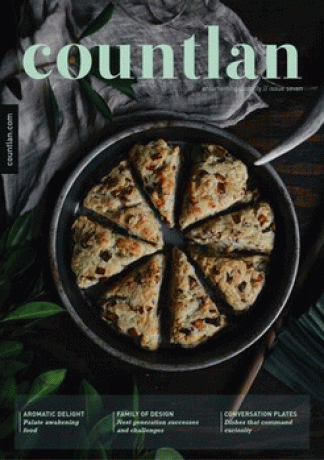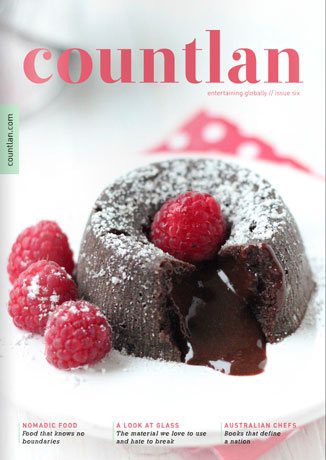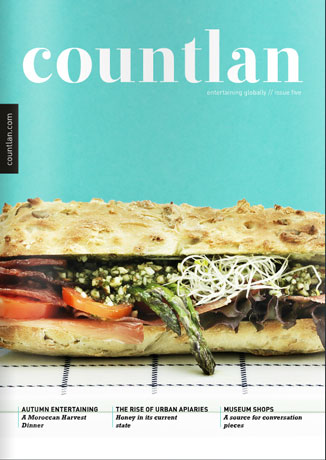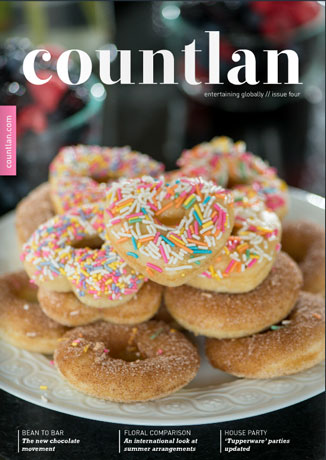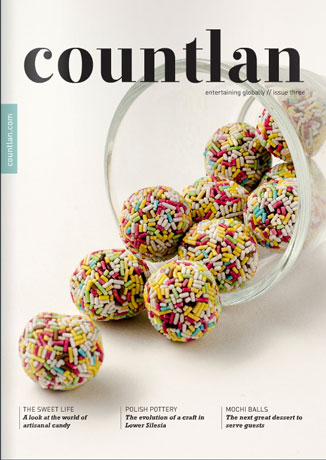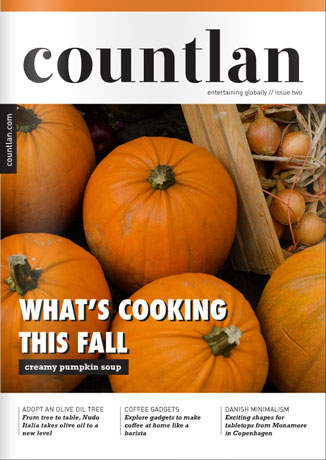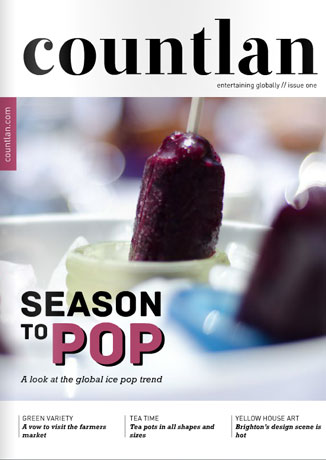The Taster: Lee McCoy and Chocolatiers
THE TASTER
Lee McCoy, the effusive chocolate ‘analyst,’ writer, International Chocolate Award reviewer and founder of chocolate website and e-commerce store, Chocolatiers, has something to say about chocolate. Lee’s passion for chocolate, began as a childhood treat and evolved into a vocation. Based in the town of Warrington, a 45 minute drive from Liverpool in the north west of England, Lee has managed to combine a degree in economics with his love of chocolate and writes volumes on how much good chocolate can do for people and how the future of great cacao is so perilous.
Tips from a professional chocolate taster:
01 Relax. Viewing any chocolate as a challenge or chore will not do the chocolate justice. I always make sure I’m “in the mood” for chocolate reviewing as it essential that I analyse with a clear head.
02 Enjoy food as a much wider topic. Being able to describe the flavours chocolate offers can only be achieved by having a varied diet. A fundamental part of enjoying chocolate is being able to share your experiences which can only be done if you can describe it terms others will understand.
03 The most difficult aspect is not to pre-judge any manufacturer, origin or ingredient as chocolate makers have a great talent for surprising you. I consciously try and judge each individual chocolate on its own merit without the burden of having an opinion on anything else I’ve tried in the past.
On selecting chocolate for a tasting:
The range or variety of chocolate you select will depend on your objectives and what is available. The variety of chocolate from Sao Tome will be much less than Venezuela for example. The key is to try as much as you can afford. There is such a great variety of quality from any one origin that many makers can achieve significantly different results. I would suggest picking a theme such as origin, cocoa %, maker and have five or so chocolates and try and compare.
On supermarket chocolate and trading up:
The issue that annoys me the most about supermarket chocolate is that you don’t really know what you’re eating. The label may say “Criollo” but a small fraction of the chocolate may actually contain any one Criollo-family of beans. But to be bold, the most shocking aspect of trading up to premium chocolate is that it actually has flavour. Not to over-simplify things, every supermarket chocolate I’ve tried that pretends to be premium chocolate has an incredibly flat flavour – regardless of origin. The one thing that many premium chocolates will offer you is a roller-coaster of flavours. It will contain a story. Great chocolate will take you on a journey. It will make you wonder what the next second will offer. Supermarket chocolate does even allude to a story – the experience is transitional and ultimately unmemorable.
INTERVIEW: Lee McCoy, chocolate taster, blogger and owner of Chocolatiers.co.uk
01 As an expert chocolate taster, how should a novice taster/palette approach a chocolate tasting?
The first step should always be relax. Viewing any chocolate as a challenge or chore will not do the chocolate justice. I always make sure I’m “in the mood” for chocolate reviewing as it essential that I analyse with a clear head. A second fundamental concept is to enjoy food as a much wider topic. Being able to describe the flavours chocolate offers can only be achieved by having a varied diet. A fundamental part of enjoying chocolate is being able to share your experiences which can only be done if you can describe it terms others will understand. Another important, and potentially the most difficult aspect, is not to pre-judge any manufacturer, origin or ingredient as chocolate makers have a great talent for surprising you. I consciously try and judge each individual chocolate on its own merit without the burden of having an opinion on anything else I’ve tried in the past
02 When you embark on a tasting how many different types of chocolate should you taste at one time?
The range or variety of chocolate you should consider will depend on your objectives and what is available. The variety of chocolate from Sao Tome will be much less than Venezuela for example. The key is to try as much as you can afford or given how much time you have to give. There is such a great variety of quality from any one origin that many makers can achieve significantly different results. Furthermore, as makers try and make as many different varieties of chocolate as possible, they may stray into origins that historically has offered average to poor cacao. I would suggest picking a theme such as origin, cocoa %, maker and have five or so chocolates and try and compare. If you don’t have a big budget to explore the potential differences available from the one origin or claimed bean I would suggest the Zotter Peru Criollo (is it really Criollo?) which combines two chocolates: one conched for 16 hours and the other for 20 hours.
03 Does tasting chocolate along side other food/drink enhance the flavour profiles of a chocolate bar?
No. I make sure I haven’t had any overtly flavoursome food beforehand. And when I review I try and make sure that I have as few distractions as possible. If I’m writing up a review then I’ll have a cup of tea or two just to offer some mental comfort. When reviewing chocolate for the International Chocolate Awards I like to have unsalted polenta. Whilst others like dry bread or apple
04 What is the biggest shock when trading up or graduating from grocery store chocolate to a more premium/handmade/higher quality product?
This is the issue that annoys me the most about supermarket chocolate. Essentially you don’t really know what you’re eating. The label may say “Criollo” but a small fraction of the chocolate may actually contain any one Criollo-family of beans. But to be bold, the most shocking aspect of trading up to premium chocolate is that it actually has flavour. Not to over-simplify things, every supermarket chocolate I’ve tried that pretends to be premium chocolate has an incredibly flat flavour – regardless of origin. The one thing that many premium chocolates will offer you is a roller-coaster of flavours. It will contain a story. Great chocolate will take you on a journey. It will make you wonder what the next second will offer. Supermarket chocolate does even allude to a story – the experience is transitional and ultimately unmemorable.
05 who is doing a good job with chocolate these days?
I feel there’s three ways to look at this. The first is producing great chocolate. Companies such as Fruition, Potomac, Bonnat make great chocolate. But they don’t have the clout to do the other half of the equation – fully support growers and engage directly with them. To me great chocolate makers support, encourage and enrich the lives of growers. They go above and beyond what they need to. Companies such as Duffy, Friis Holm, Pacari and Guittard are doing that. And to me that sets them apart. Thirdly companies such as Madre and Zotter push the boundaries of chocolate. Madre with their intense knowledge of flavour and Zotter because Josef is just crazy. Madre have a triple cacao chocolate which adds the flesh around the bean, whilst Josef will combine strange ingredients and make a different type of person think more intently about chocolate
06 Is there a “proper” way to taste chocolate – the equivalent of swirl, swish and spit (wine)?
Tasting chocolate is a personal experience and chocolate tasters should explore their own methods. For serious reviewing at a judging session I’d always let the chocolate melt in my mouth without any intervention and then spit the remainder when I’ve fully gauged the flavour and texture. For home reviewing I’ll never spit as I’ll have opportunity to review at my leisure. That is, of course, if I like the chocolate. In the past few years I’ve only ever spat out chocolate three or four times because it was poor.
07 How did you get into the chocolate business?
Chocolate has always been a pleasurable, family experience from a young age. As I grew older and wanted to write online I chose chocolate because I had a passion for it and it was a topic that never ceased to surprise me. Latterly, I continued in the business because I learned more about how much good chocolate can do for people and how the future for great cacao is so perilous. My degree in Economics connected with my passion and now it’s become a vocation rather than an occupation.
08 Where is your base?
I’m based in Warrington, in the North of England – as far from the centre of the chocolate world as you can get. That keeps me grounded and distant from too many distractions. It does, however, have some truly fantastic people in the industry.
09 How long have you been involved with the world of chocolate?
As a lover of chocolate for about 30 years. Writing about chocolate for about six years and selling it for only the one. This sort of personal evolution is one I’m most proud of. I don’t make any profit selling chocolate. Everything my chocolate shop earns goes back into buying a wider variety of chocolate so that people in Europe can enjoy the great chocolate made by wonderful people all around the world.


